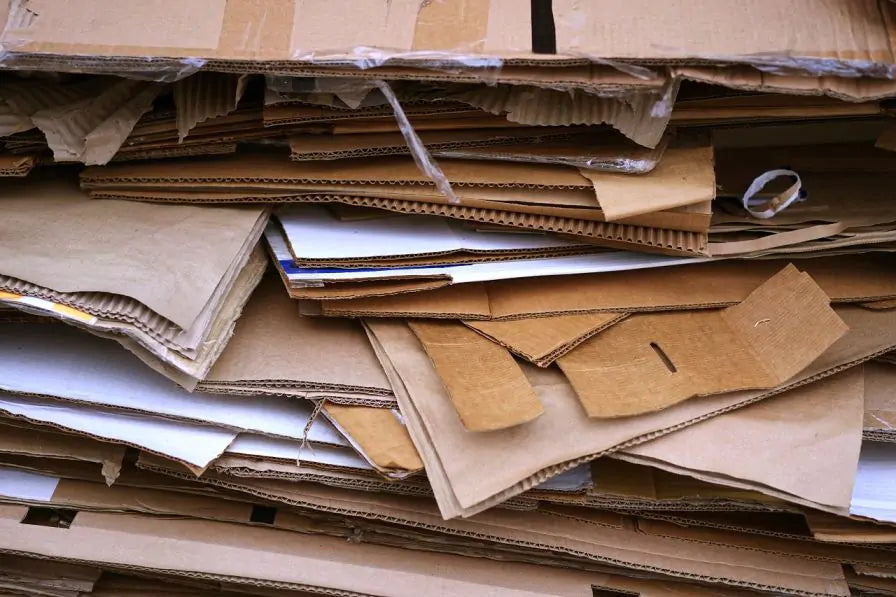Your basket is currently empty.
Shop NowThe How and Why of Recycling

The How and Why of Recycling
Step number one for setting up your home recycling program is to determine how the bins are set up at your municipal recycling centre. Do they only offer a simple cardboard, paper, plastic type of operation or is it something more sophisticated?
If your recycling centre is like most municipal centers in the UK and the USA, they will provide a number of receptacles for a large variety of household and even commercial recyclable materials.
The Recycling Secret
The secret that many governments do not share is that virtually everything can be recycled. There are many reasons why the focus appears to remain on a limited number of items. Read on to learn why this is the case.
Don't be confused by the number of products that are coded with the universal recycle symbol. Also, don't be discouraged by the number of bins available at the local facility.
Your centre will have a pre-defined number of bins for a select number of items based on the needs determined by the local sanitation council. Once you get to know the program, it will be far less daunting.

Get the Facts
Most local governments have literature available at the centre that can spread some light on the program for you. It may also be possible to get insights from the internet. Many municipalities throughout the world today post their pertinent recycling information online.
To make the process easy, even for the less educated citizens, as well as to be used in classrooms as educational tools, many municipalities post detailed, step-by-step guides to household recycling.
Before you haul items to the recycling center and place them in a bin, educate yourself on the program to avoid an embarrassing situation. Some cities post lengthy lists that are very precise about both what can and what cannot be recycled. Again, this will vary from jurisdiction to jurisdiction, so what can be recycled in one city or enclave may not be permissible in the next.
Consumers should also be aware that some manufactures place recycle information on products that are sold worldwide and that information may not be applicable to them.
In the UK, recycling targets are mandated at the national level, but just as with the U.S. and many nations on the European continent, the details are left to the locals to sort out.
This gives each municipality to freedom to set their own program parameters based on the costs involved in handling and reprocessing items, statutory targets that are based on weight, local collection logistics, and the whim of local recycling proponents.
Despite years of public relations work and marketing efforts designed to educate and motivate citizens on the virtues and benefits of recycling, UK residents still by and large place all rubbish into their general container rather than sort and segregate items for proper recycling.
The cost factor is, of course, the most pressing universal factor. The more complicated the process becomes, the more the process costs. This creates a situation of diminishing returns, since recycling generates little in the way of actual revenue and is more savings-based.

Paper, Plastic, Cardboard
In addition, the more complicated the program becomes, the less likely residents are going to be willing to cooperate. This is why many smaller local operations deploy only the standard PAPER, PLASTIC, CARDBOARD program.
Another cost factor is transportation of the rubbish from the collection centres to the physical processing centres. Fuel costs are a part of that calculation along with many other factors that determine what can and what cannot be recycled.
Some councils have developed a program that presents only two bags, into which items are only partially segregated. They may ask residents to sort paper, cardboard and textiles into one container and plastics, metal and glass in another.
This method reduces the confusion and burden placed on the consumer. Some local authorities, however, have not opted for the simplest solution and this is listed as one of the chief reasons why residents say they refuse to cooperate with recycling guidelines.
WASH and SQUASH
Also at issue is how much preparation consumers should put into items before tossing them in the recycling bins. The basic concept is the WASH & SQUASH guideline.
WASH means that any food remnants and liquid should be removed from the can or bottle and it should be rinsed clean. It doesn't have to be spotless, just use good judgement.
SQUASH means that metal cans should be crushed to the best of one's ability and plastic bottles should be pressed as flat as possible.
These steps help avoid bacterial contamination and facilitate collection and storage of recyclate.
